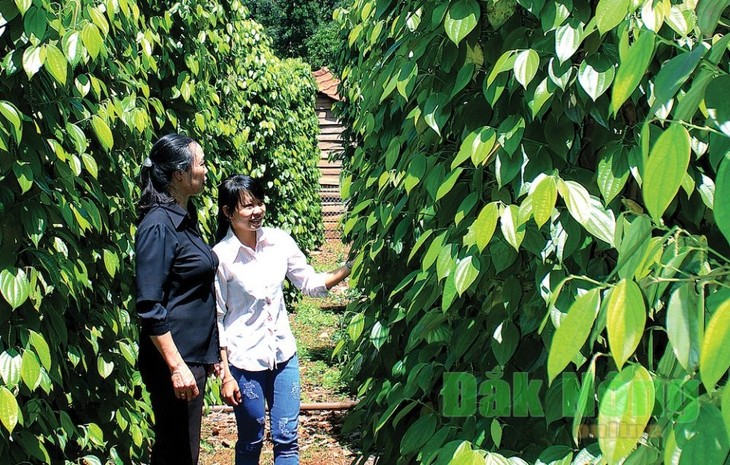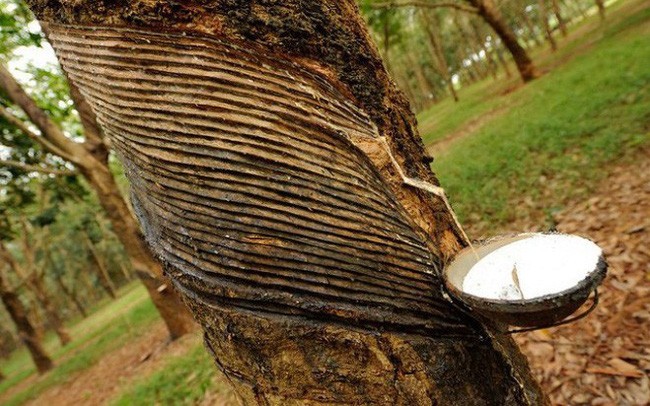(VOVWORLD) - The government has issued a new decree to create favorable conditions for Vietnam’s commodity exchange, especially for transactions with foreign partners, in order to increase the competitiveness of Vietnam’s farm produce.
 Pepper is one of Vietnam’s leading export farm produce (Photo: daknong.gov.vn) Pepper is one of Vietnam’s leading export farm produce (Photo: daknong.gov.vn) |
Vietnam is one of the world’s largest exporters of farm produce, with particular strengths in coffee, pepper, cashew nuts, and rubber. But the value of Vietnam’s agricultural export items and standards for the products has been decided by foreign businesses. Once Vietnamese exporters abide by international standards and technical barriers, they can defend their products and will not be dumped in overseas markets. All transactions are made in line with market regulations.
Nguyen Duc Dung, Deputy Director General of the Vietnam Commodity Exchange, said: “We have connected with logistics and warehouse providers to facilitate businesses who participate in our exchange. We want to help businesses to prevent possible risks.”
Vietnamese farmers have been forced to sell their pepper at low prices as they are unable to control the price due to a lack of world reference prices. Meanwhile, the pepper prices of India and Brazil remain relatively high as they benefit from being traded through the commodity exchange.
Nguyen Mai Oanh, Vice Chairwoman of the Vietnam Pepper Association, said: “We have worked with India’s Pepper Association and agreed to participate in the same commodity exchange. It will become easier for us to exchange information and stabilize pepper prices. Indian firms want to invest in Vietnam and participate in Vietnam’s pepper transaction floor.”
 Vietnam is one of the world’s major exporter in agricultural products including rubber. (Photo: café.vn) Vietnam is one of the world’s major exporter in agricultural products including rubber. (Photo: café.vn) |
The Ministry of Industry and Trade previously piloted the Buon Me Thuot coffee exchange center which was closed a few years later. Foreign companies often buy Vietnam’s coffee at low prices, then process and sell it at higher prices. Vietnamese coffee enterprises and farmers hope that the domestic commodity exchange will be linked with foreign ones to help more transparent information and reduce risks caused by price fluctuations.
Nguyen Huu Thang, Director of Xuân Lộc Pepper Co-operative in Dong Nai province, said: “Farmers don’t know which criteria are required for pepper to be traded on the commodity exchange We hope managers and specialists will help us to follow the standards so that our products can be listed on the exchange soon.”
Trinh Duc Minh, President of Dak Lak province’s Coffee Association said domestic farm produce companies need more support to fully benefit from commodity exchanges.
Minh said: “Businesses, banks, logistics companies, and goods trading bureaus should work and link with each other. Once we’re successful with some initial products, we can create trust.”